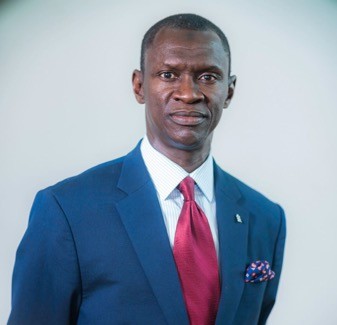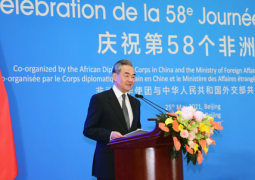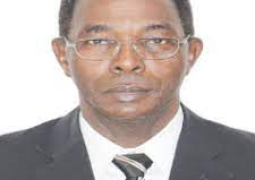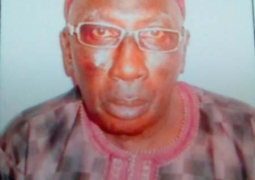
In every legal fraternity, there exist individuals whose professional lives stand as monuments to dedication, intellect, and the tireless pursuit of justice. These senior lawyers, through decades of service, have shaped the course of jurisprudence, mentored successive generations of practitioners, and strengthened the very foundations of the rule of law. Yet, it remains an unfortunate convention that their achievements are often celebrated only posthumously. Glowing tributes, effusive memorials, and solemn moments of remembrance tend to follow their passing, leaving a lingering sense of regret that their contributions were not more fully acknowledged in their presence.
It is a tradition that ought to be re-examined. The legal profession must embrace the practice of honouring its stalwarts while they are still among us, through formal valedictory ceremonies that recognise their lifetime of achievement. Such recognition, offered during their lifetime, is the highest and most meaningful tribute the fraternity can bestow. As Lord Denning once said, “Justice must be rooted in confidence; and confidence is destroyed when deserving lives are honoured too late.” Those who have worked tirelessly to ensure the stability and progress of the law deserve to witness the fruits of their labour recognised and celebrated.
Recognition conferred upon an individual during their lifetime possesses a profound emotional and professional significance. To be able to see, hear, and feel the gratitude and admiration of one’s peers is a rare and deeply human experience. It affirms that the sacrifices made, the battles fought within the courtroom, the countless hours devoted to the meticulous study and application of the law, were not only necessary but profoundly impactful. It provides the honouree with the satisfaction of knowing that their work resonated beyond the confines of their chambers and courtrooms and left an enduring imprint on the lives of others. Such a moment offers closure, dignity, and an unparalleled sense of fulfilment.
Moreover, a valedictory ceremony serves a function beyond the personal. It becomes an occasion for the transmission of inspiration and institutional memory. The narratives of senior lawyers, their struggles, triumphs, moments of doubt and perseverance, when recounted personally, provide an invaluable resource for younger members of the profession. As Lord Neuberger observed, “It is not merely what judges and lawyers do that matters, but how they inspire others to follow them, and that inspiration should be shared while the flame still burns.” When the younger generation witnesses such a celebration, they do not merely see an individual being honoured, they see a life in the law worth emulating. In a time when the legal profession must continuously defend its values and integrity against external pressures, such occasions strengthen the sense of purpose among all its members.
The wisdom carried by senior lawyers is, in many ways, a living archive of the profession’s history. Through them, we connect with the evolution of the law, the shifting standards of advocacy, the social and political challenges that shaped judicial outcomes, and the human side of landmark cases. Their recollections fill the inevitable gaps left by the formal record, providing context, nuance, and a deeper understanding of the profession’s journey. To preserve these insights through a valedictory ceremony is to safeguard the very soul of the legal fraternity for future generations.
Furthermore, such ceremonies cultivate a culture of gratitude within the profession. They remind us that the legal journey is not embarked upon alone. Every young practitioner stands on the shoulders of those who came before, benefitting from their battles, their wisdom, and their sacrifices. To publicly acknowledge this debt is to nurture humility and to reinforce the ideals of service and respect which are the hallmarks of a noble profession. In the words of Lady Hale, “Success in the law is rarely solitary, it is built on the support, the examples, and the encouragement of others. Recognising them openly dignifies the journey.” Celebrating those who have upheld this moral sentiment during their lifetime only strengthens the bond between the law and society.
As Justice Sandra Day O’Connor eloquently remarked, “we do not accomplish anything in this world alone and whatever happens in the result of the whole patchwork of one’s life and all the weavings of individual threads from one to another that creates something.”
Valedictory ceremonies allow us to witness and celebrate that living tapestry in its fullness, ensuring that thread is recognised while it still vibrantly contributes to the fabric of the legal profession.
In addition to honouring the individual, valedictory ceremonies serve to unify the profession itself. In an era marked by increasing fragmentation and public scrutiny of legal institutions, they offer a moment of collective reflection and solidarity. They reaffirm the shared values that transcend generational and ideological divides and project to the broader society the image of a profession that honours merit, experience, and service.
In contrast, posthumous celebrations and tributes, however sincere and eloquent, are often tinged with regret. They serve more as a comfort to the living than a celebration for the departed. However grand the words spoken at a memorial, they cannot replace the simple yet profound opportunity to express gratitude to a living colleague. The loss is twofold i.e. the honouree is deprived of the joy and fulfilment of recognition, and the profession is deprived of the opportunity to give thanks in a manner that nurtures deeper personal and collective bonds.
It is therefore imperative that the legal fraternity institutionalise the practice of organising valedictory ceremonies to celebrate the lives and accomplishments of senior lawyers in their lifetime. Such events should be solemn yet joyful, dignified yet personal, and above all, sincere. They should offer the honouree an opportunity to reflect, to impart final words of wisdom, and to leave a legacy not just of professional excellence, but of humanity, humility, and hope for the future.
The law, at its core, is a living, breathing entity, shaped by the lives of those who practise it. Let us ensure that those who have shaped it most profoundly are celebrated not in their absence, but in their presence, with the standing ovations they have earned, the words of gratitude they deserve, and the affection they have inspired. In doing so, we not only honour them, but we honour the very ideals to which we, as officers of the court, are called to dedicate our lives.
- Lord Denning – from The Discipline of Law (1979) – on public confidence.
- Lord Neuberger – adapted from his lectures on judicial legacy.
- Lady Hale – farewell address to UK Supreme Court (2020).
- Justice Sandra Day O’Connor – from Lazy B: Growing Up on a Cattle Ranch (personal reflections).
Read Other Articles In Opinion
Gambian delegation welcomed to 3rd China-Africa Economic and Trade Expo (CAETE)
Jun 21, 2023, 2:15 PM




